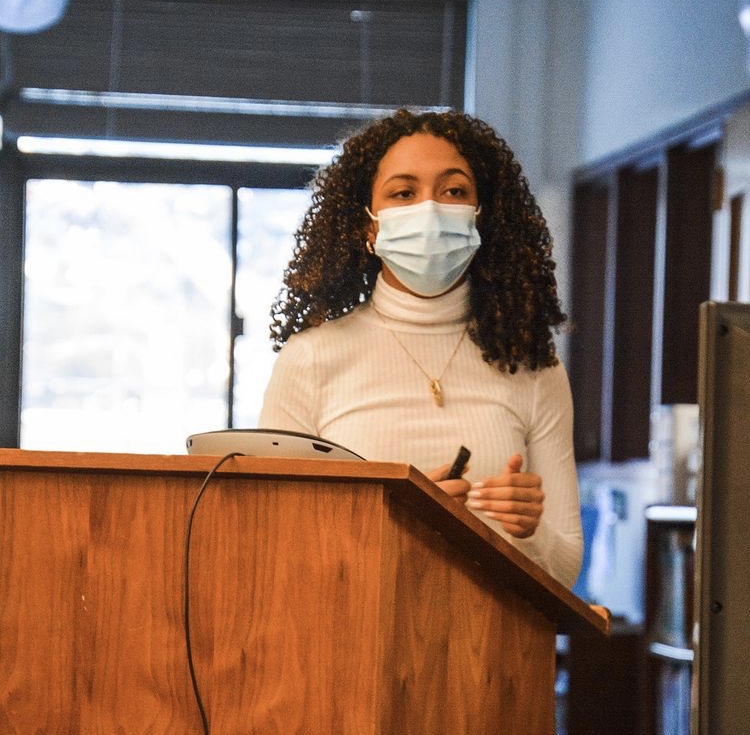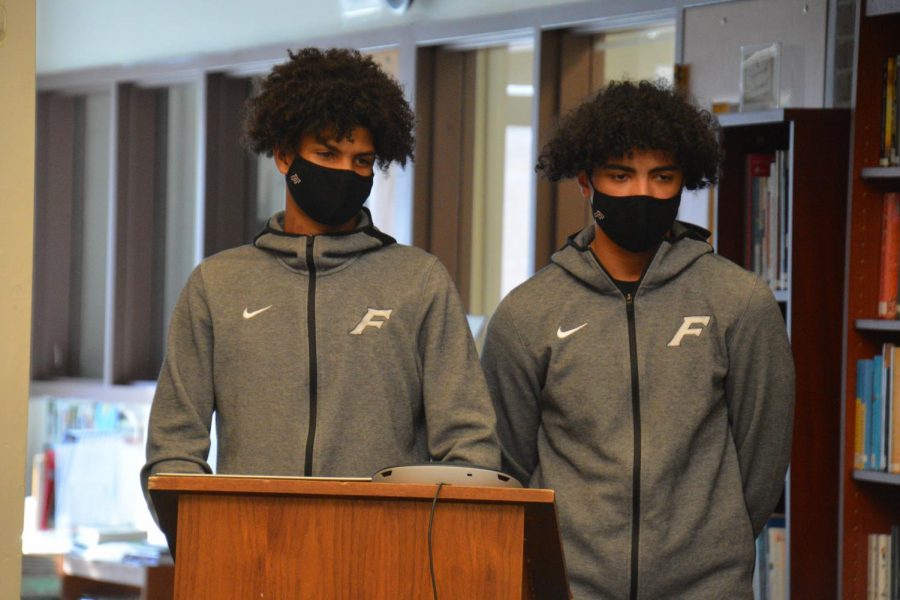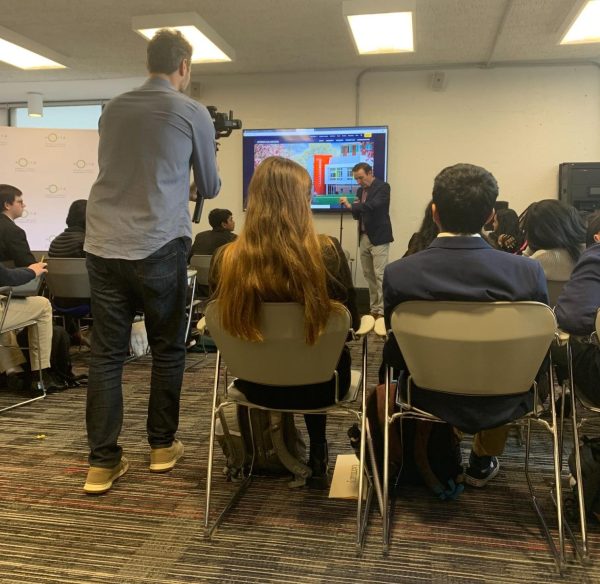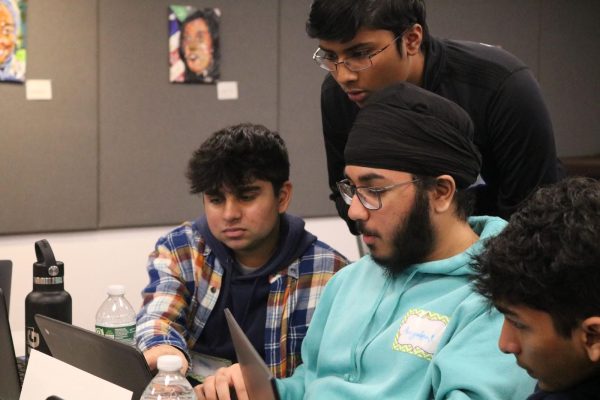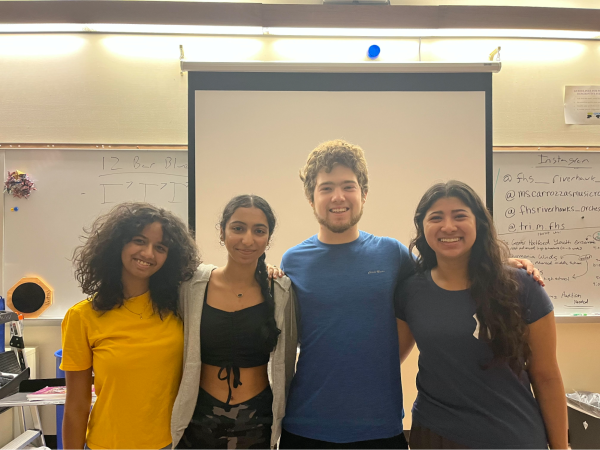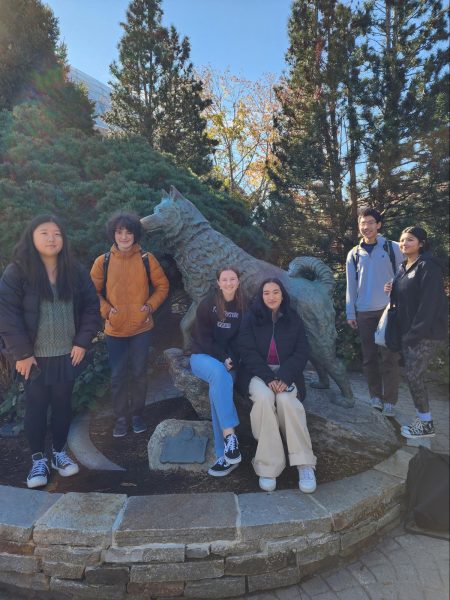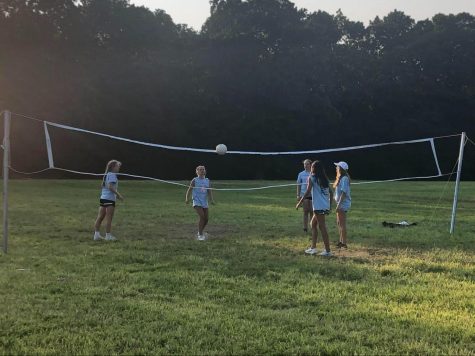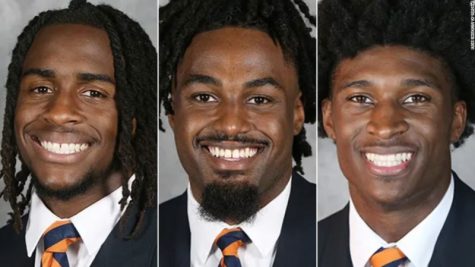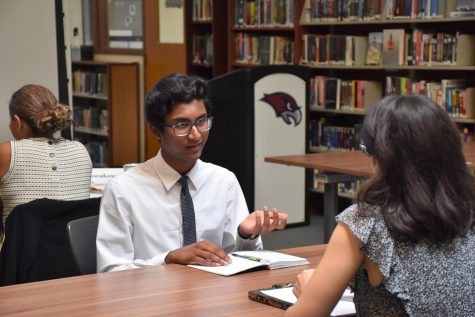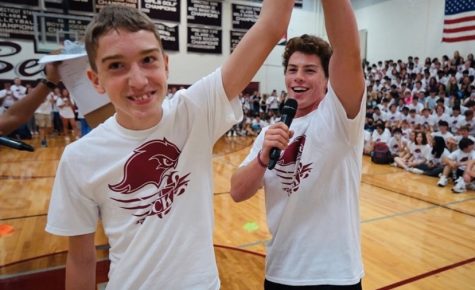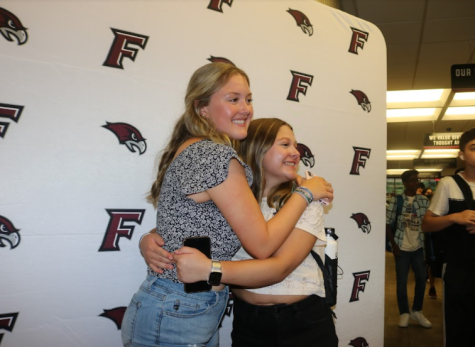Social Justice Week persists through virtual platform
Together we rise– Senior Dani Cloud speaks to both in-person and virtual audience members at the fifth annual Social Justice Week, an event led by the Social Justice clubs in the high school. Cloud began the week with a presentation on White Privilege alongside members of the Black Student Union (BSU).
February 25, 2021
During a school year like no other, Social Justice council members delivered their presentations online due to COVID-19 restrictions for the fifth annual Social Justice Week (SJW). Throughout the week of February 8, high school community members had the opportunity to virtually attend a variety of presentations to educate themselves on historical and current social justice issues.
Social Justice groups were created to represent the diversity of Farmington students. Social Justice clubs include the Asian-American Student Union (ASU), Black Student Union (BSU), BRAVE, FHS Music, Gender Sexuality Alliance (GSA), Indian Student Union (ISU), Jewish Student Union (JSU), LatinX Culture Club, Mental Health Awareness Club, Multicultural Student Union (MCSU), Muslim Student Union (MSU), and Social Justice Club.
Presentations varied in topic, with some being an entry-level introduction to fighting hate and discrimination, while others touched upon more complex and in-depth topics. Students presenting shared their personal experiences and research regarding racism, antisemitism and islamophobia, sexism, ableism, and other forms of discrimnation.
“By bringing light to so many important social issues currently taking place, it allows everyone to have a conversation, to talk about issues that matter to them, and to be able to fight for change that they want to see in our country to further better the development of our society,” sophomore presenter Carly Passaro said.
The presentations were prepared and presented by student leaders and participants in the clubs. Students were supported by teacher and faculty advisors; however, the adults encouraged students to take the lead in the club’s projects and meetings, especially during the presentations.
“It is essential that social justice presentations be student led. First, because this is a student-driven event, and we want to be sure that the topics that are discussed are those that are relevant and interesting to the student body. Second, because these topics are often controversial and sensitive. I think that when peers discuss difficult topics they often have a more honest conversation, free from the power dynamic that comes when one of the speakers is in a position to ever assess another one,” BRAVE advisor Meg Monaghan said.
In previous years, students could go to the library to watch live presentations during their free periods, and even classes, throughout Social Justice Week. However, with the COVID-19 virus changing school procedures, social justice representatives worked collaboratively with administrators to find a way to share the presentations with their peers.
Junior Emily Vitaleis gave a virtual presentation on the AIDS crisis.
“This presentation covered the history of AIDS, and its effect on America and the LGBTQ+ community both then and now,” Vitale said.
Dealing with COVID-19 obstacles was certainly a challenge, but everyone involved was dedicated to finding a way to deliver the presentations.
“COVID-19 has forced Social Justice Week presentations to be all virtual, but to the credit of all of the SJW clubs and presenters, they are taking advantage of this opportunity and making the most of it. This is the fifth year of SJW, and each year we are asked how can SJW be better next year, and each year students somehow find a way to make it better,” Student Activities Director Chris Loomis said.
The act of allyship can not be perfected in one week, but by attending any of the social justice presentations, students and faculty made a step in the direction of educating and fighting issues in their community, locally and nationally.
By promoting education and active citizenship, Social Justice Week encouraged students to practice tolerance and acceptance of other cultures and identities, a goal that the high school will continue to advocate for.
Words from SJW presenters
“Through this presentation, I hope people understand that while I can’t force them to not say a word, words truly mean nothing without context and the context of this word is that it was weaponized to psychologically brutalize black people. Every time a non-black person says this word they’re echoing the hatred behind that word.” – Senior Ayan Mohamud
“In the immigration presentation, we explored the legal immigration process and highlighted how refugees seek asylum and the ways policies have changed during the 21st century. But ultimately, what people should take away is how immensely difficult it is for all migrants to enter the U.S and to help illustrate the harsh and unpredictable experiences of migrants” – Senior Lily Feng
“Mental health experiences vary greatly depending on certain factors, including and especially race. The experiences of Black Americans with mental health vary tremendously from those of other races, but it is important to understand and empathize with those experiences and realize how current systems of oppression can uphold certain outdated ideas.” – Junior Medha Arora
“As a society, we need to improve our knowledge of ableism and disabilities in order to provide greater accessibility and inclusivity for disabled people. The lack of knowledge and inclusivity towards disabled people is the greatest perpetrator of ableism. In order to reduce ableism we must first improve the accessibility of society and our level of education around disabilities.” – Sophomore Jordan Altimus
“In my presentaiton I hoped to have given an in-depth study of internalized homophobia and explore the questions: what is it?; how does it manifest itself within LGBTQIA+ youth?; what is the relationship between internalized homophobia and heteronormativity?” – Junior Sal Farrell
“What I hope that the audience took away from BRAVE’s Body Positivity presentation is the importance of recognizing and promoting inclusivity for all body types in today’s society no matter your gender, while also diminishing the social stigma of body shaming others.” – Senior Sasha Davis
“Black women experience a particularly painful marginalization; they suffer from the double burden of being black and female in a nation that has always given priority to the experience of whites and males. We ultimately want people to understand particular challenges and struggles Black women face.” – Senior Mercy Adekola
“It is important to learn about social justice issues to realize what YOU can do to make a change in your community.” – Sophomore Valentina Salazar

